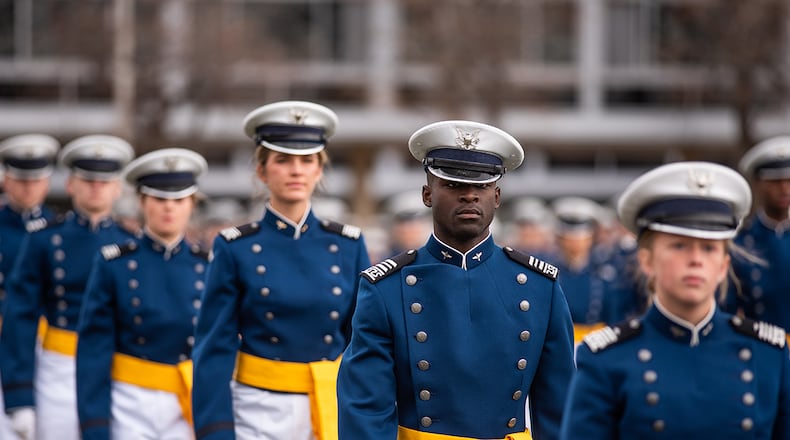HAF/A3, HAF/A1, SAF/MR and AFIT agreed upon the non-traditional master’s degree option that will initially serve U.S. Air Force Academy grads who are experiencing significant delays in undergraduate pilot training pipeline report dates.
“AFIT has provided a solution to the Air Force-level delay in pilot training throughput. AFIT is offering what we know best, graduate-level education, to answer that need and provide an opportunity to newly commissioned officers to obtain a master’s degree benefiting the Air Force and the officer,” said Col. John McQuade, AFIT Graduate School of Engineering and Management dean of students.
Seventy-two USAFA graduates have been accepted to the new 12-month program and are set to arrive at AFIT in July for in-processing. The students will start their academic progression in the fall quarter. Without AFIT’s degree program option, this group of officers would have been assigned to a training base where they would remain on “casual status” until their undergrad pilot training start date.
“AFIT enrolls officers every year from USAFA that have been accepted into graduate studies programs who are also in the aviation pipeline with an undergraduate pilot training seat. This group will be in addition to those officers. These officers are not expected to go on and become scientists and engineers in the Air Force. However, this experience will teach them problem framing, analysis, solving and a deeper appreciation of their chosen academic discipline. All of these skills are required, whether flying a plane or not, to embody the ‘accelerate change or lose’ challenge handed to us from Gen. Brown,” McQuade explained.
AFIT’s Graduate School hopes to expand the program to include USAF ROTC in follow-on yearly offerings. The current non-thesis master’s degree program options include advanced degrees in aeronautical engineering, cyber systems, operations research, space systems and systems engineering.
About the Author
